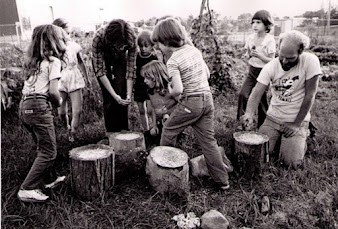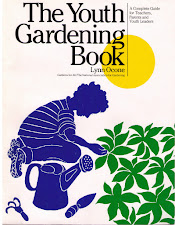BACG History Post #38
In 1978, six Garden Way companies were combined under Garden Way, Inc. The 12 founding stockholders became equal partners in the corporation. Five stockholders worked with Garden Way Associates, based in Vermont. The other seven stockholders worked with Garden Way Manufacturing, the largest division of the corporation, based in Troy, New York.
The stockholders elected the company's founder, Lyman Wood, as president of Garden Way, Inc. He maintained control of day-to-day operations from the corporate headquarters in Charlotte, Vermont.
From 1979 through 1980, the New York branch of Garden Way continued to make healthy profits selling Troy-bilt roto-tillers, while the Vermont-based operations accrued a substantial loss.
Conflicts emerged among the Garden Way partners and board members around Wood's visionary projects. The 1981 purchase of the Seaway Shopping Center in South Burlington, at a price of four million dollars, proved to be the tipping point.
On January 28, 1982, Lyman Wood was ousted as president of Garden Way in a surprise coup. More than 20 of Garden Way's top employees in Vermont lost their jobs. The coup was engineered by a group of dissident stockholders led by Richard Denholtz, who had worked with Wood since 1960. Denholtz was elected board chair. Dean Leith, Jr. replaced Wood as president of Garden Way.
A series of three investigative newspaper stories were written by a Dan Gillmor. He described the events leading up to the Garden Way coup and the aftermath. The first story, published on February 21, 1982 in the Rutland Herald and Sunday Times Argus is reprinted below.
Gilmor graduated from the University of Vermont in 1981 with a BA in political science. His career as a noted journalist, author, and educator, which began in Vermont, spans more than 40 years.
After the coup, Gardens for All was notified by Garden Way's new owners that it would lose the bulk of its annual funding. The drop in GFA's corporate support was precipitous, from a half million dollars in 1982 to $36,000 of projected revenue in 1983.
To keep the nonprofit organization afloat financially, Gardens for All staffers took pay cuts of up to 50%. Growth efforts focused on GFA's national membership campaign, which had begun in 1980. Membership had reached the level of 55,000 at the end of 1981.
The Gardens for All quarterly newspaper became the principle driver for member recruitment and engagement. In 1983, the break-even goal of 150,000 members was met. By 1985, Gardens for All produced a monthly glossy magazine with a circulation to nearly 250,000 members.
In 1982, Gardens for All began to sell gardening tools and equipment through the Gardens for All newspaper. Will Raap conceived the idea and found sources to import specialty tools and gardening supplies.
The classified ad to the right, posted by Raap, appeared in the Burlington Free Press on December 22, 1982. The new initiative soon outgrew the space at Gardens for All. In 1983, Raap and eight others founded Gardener's Supply Company as a spin off from Gardens for All.
Gardens for All projects supported by Garden Way funding began to be pruned back in 1982. Burlington's community garden program, which had launched Gardens for All as a nonprofit enterprise ten years earlier, faced a pending transition.



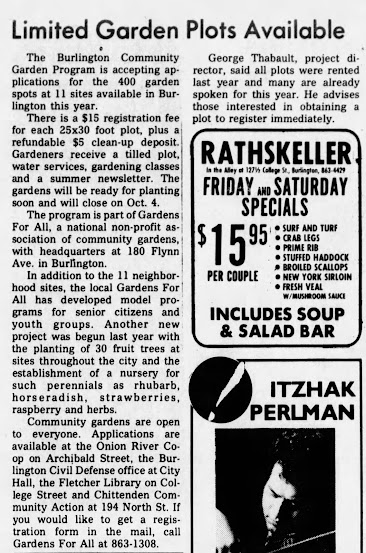
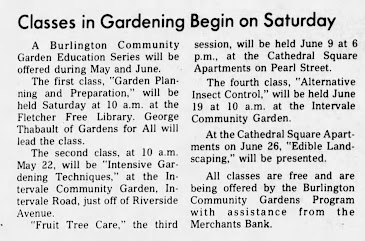
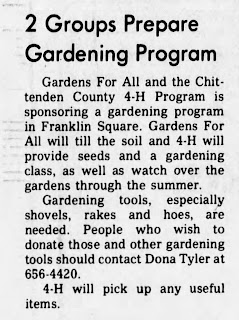


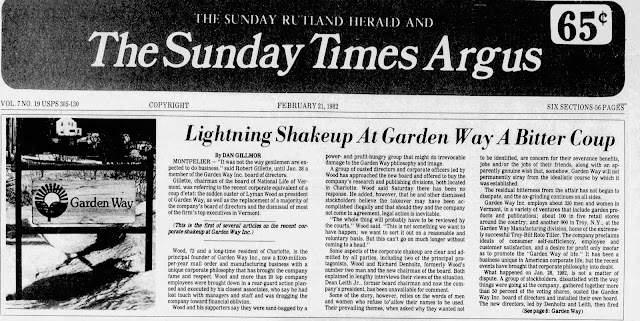
.jpg)




